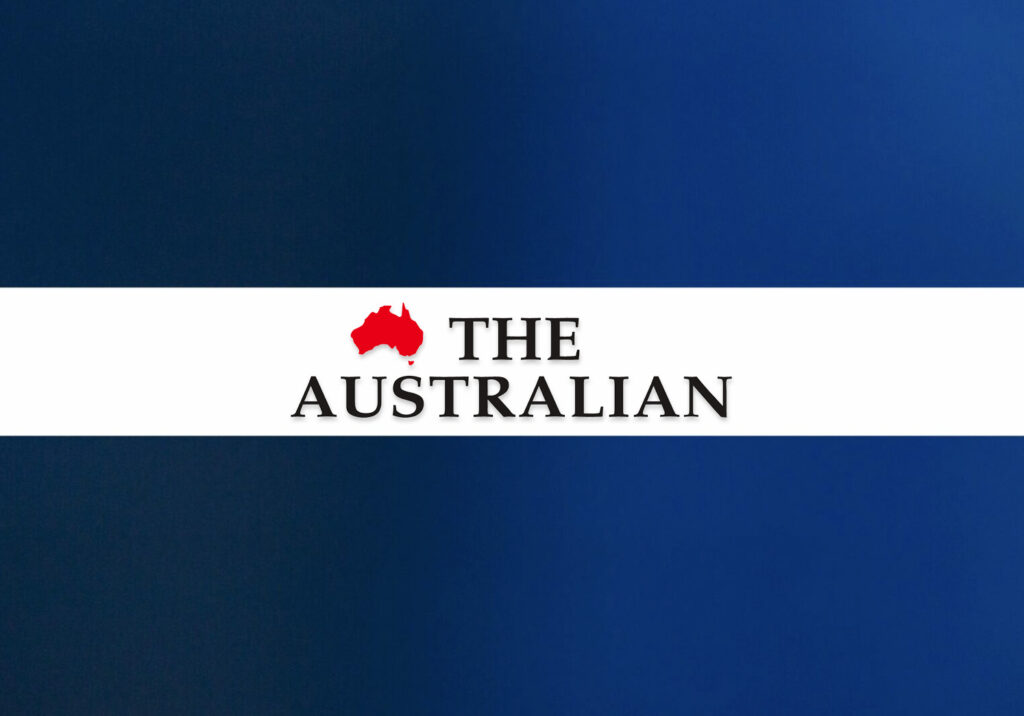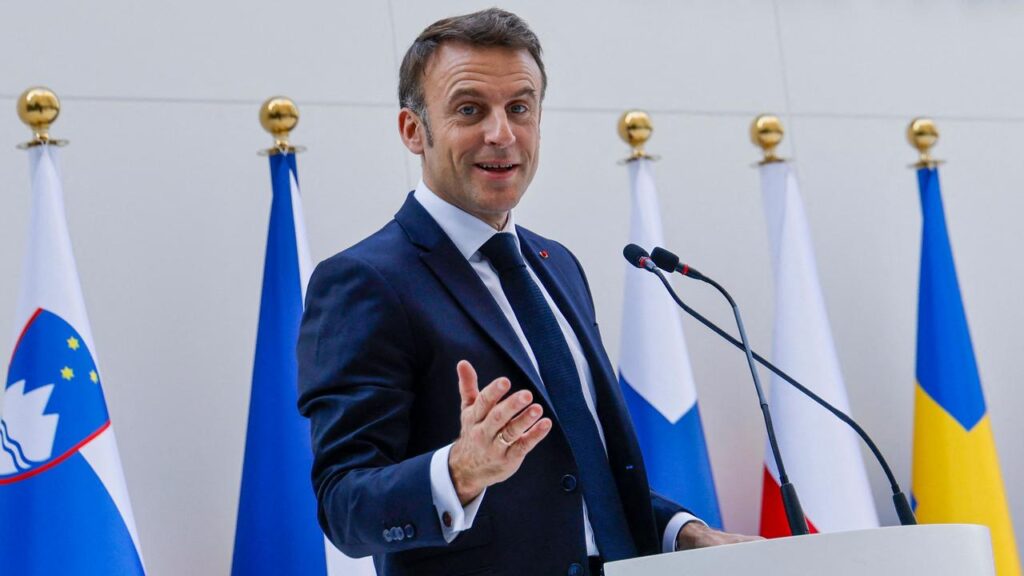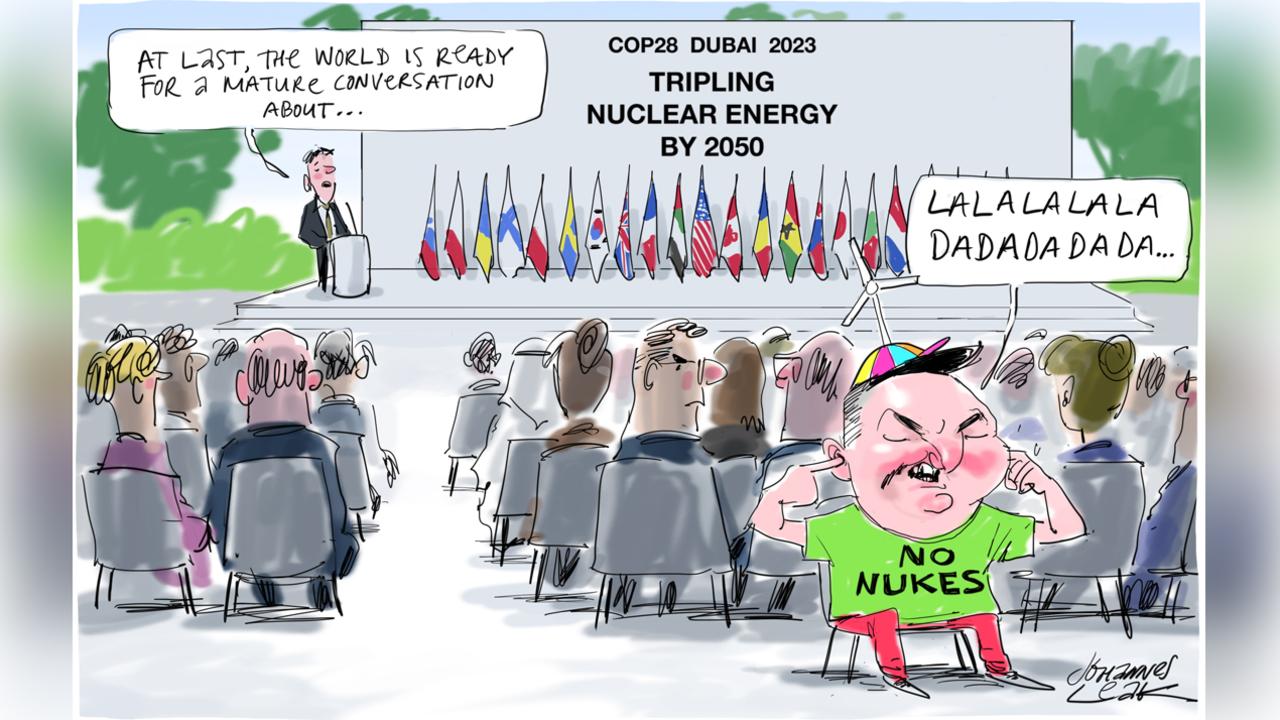

Article by Rosie Lewis courtesy of the Australian.
French President Emmanuel Macron has urged Australia to lift its nuclear ban as the Albanese government shunned a declaration endorsed by more than 20 countries at the UN climate change conference to triple nuclear energy capacity globally by 2050.
Climate Change and Energy Minister Chris Bowen, who will head to Dubai for the COP28 summit this week, on Sunday faced Coalition claims that the government had “foolishly isolated itself from its AUKUS allies” by refusing to sign up to the nuclear pledge.
When 17-year-old Nuclear for Australia founder Will Shackel, who identified himself as an Australian, asked Mr Macron for his thoughts on nuclear energy’s role in global plans to decarbonise, the President responded: “I hope that you will manage to lift the ban. Nuclear energy is a source that is necessary to succeed for carbon neutrality in 2050.”
The government signed up to the UAE’s initiative to triple global renewable energy generation capacity and double global average annual energy efficiency improvements by 2030 but rejected its nuclear declaration.
Countries that endorsed the pledge included the US, Canada, France, Japan, the UAE and Britain, recognising “the key role of nuclear energy in achieving global net-zero greenhouse gas emissions/carbon neutrality by or around mid-century and in keeping a 1.5C limit on temperature rise within reach”.

With nuclear set to be a political flashpoint between the major parties at the federal election, Peter Dutton hit out at the Albanese government for being the only G20 nation not to have embraced or be on the pathway to embracing nuclear technology.
“When more than 20 countries, including some of our closest allies, signed a pledge today at COP28 in Dubai calling for a tripling of zero-emissions nuclear energy, our government was nowhere to be seen,” the Opposition Leader said. “US Climate Envoy John Kerry said ‘ … you can’t get to net zero in 2050 without some nuclear’. If Australia is serious about reaching net-zero emissions by 2050 while keeping the lights on and getting prices down, we can’t afford to take any option off the table.”
Opposition energy spokesman Ted O’Brien said the government had “foolishly isolated itself from its AUKUS allies and 20 other nations” by refusing to back the pledge.
Nuclear for Australia founder William Shackel says it is “disappointing” the Australian delegation is not “coming to… the table” as more than 20 nations at COP28 sign a pledge to triple nuclear power generation by 2050. Mr Bowen’s spokesman said it would “take decades for Australia to start from scratch if we followed the Liberal National Party’s gamble for nuclear in Australia. (That’s) time we don’t have after the LNP oversaw 26.7GW of coal generation announced closure dates – with no plan to replace it.
“Australia has a massive comparative advantage when it comes to the cheapest form of energy-firmed renewables, with more sunlight hitting our landmass than any other country.”
The spokesman also said the government would support COP28’s triple renewable pledge through the expanded Capacity Investment Scheme; its $2bn Hydrogen Headstart program; the $20bn Rewiring the Nation plan to upgrade the electricity grid; developing a national energy performance strategy; a $1.7bn energy savings program; and rolling out solar banks and community batteries.
“Australia has the highest penetration of rooftop solar in the world and a plan to get to 82 per cent renewables by 2030 to deliver cleaner, cheaper and more reliable energy. For emissions to go down around the world, we need a big international push,” Mr Bowen said. “Australia has the resources and the smarts to help supply the world with clean energy technologies to drive down those emissions while spurring new Australian industry.”